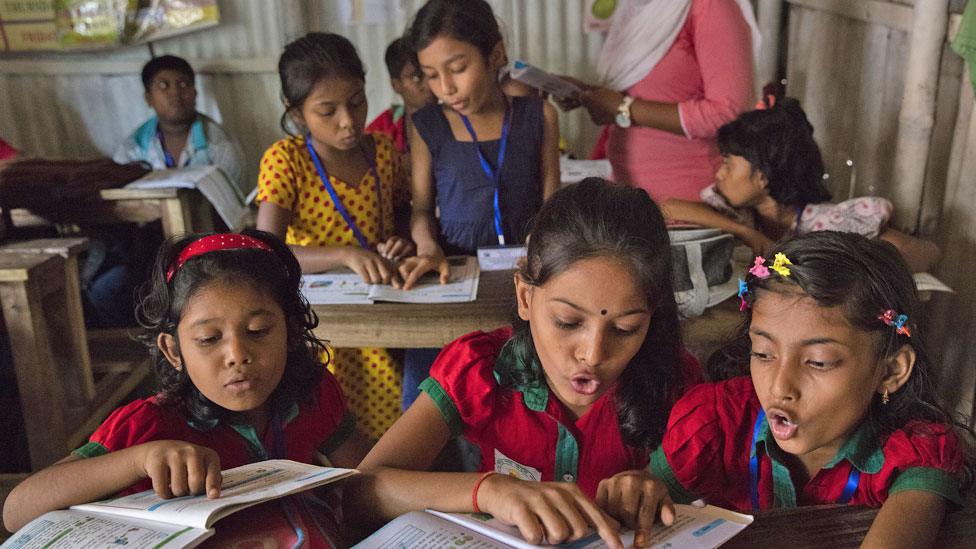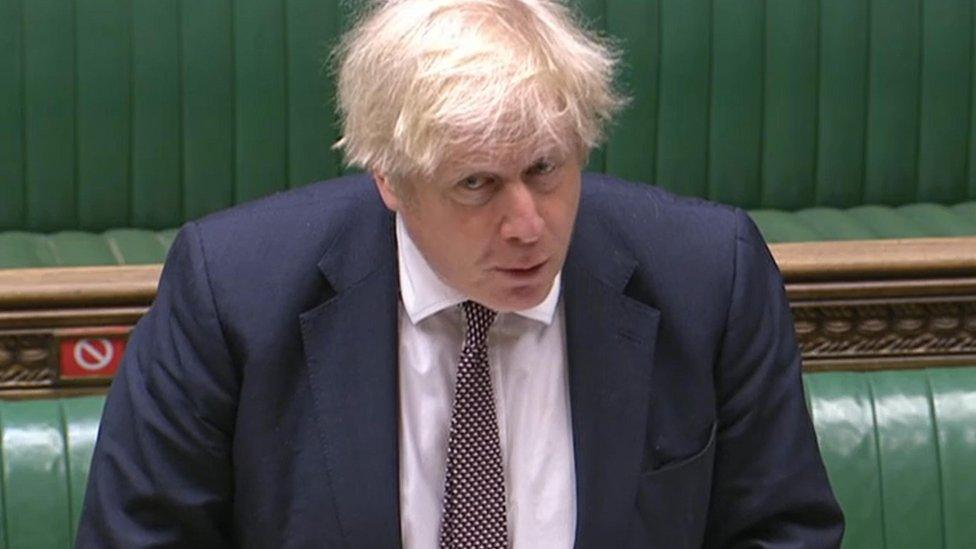Boris Johnson says girls' education key to ending poverty
- Published

The international community has missed previous deadlines on ensuring access to school
Boris Johnson says it is his "fervent belief" that improving girls' education in developing countries is the best way to "lift communities out of poverty".
The prime minister has announced MP Helen Grant as a special envoy for efforts to support girls' education.
It is expected to be a key theme of the UK's presidency this year of the G7 group of major industrial countries.
"It can change the fortunes of not just individual women and girls, but communities and nations," says the PM.
Even before the pandemic, millions of children in developing countries did not have any access to school - and girls from disadvantaged families are particularly vulnerable to missing out on education. whether through poverty or prejudice.
12 years in school
The Covid pandemic has created even more barriers to education, with a peak of 1.6 billion children around the world having faced school closures.

Boris Johnson wants girls' education to be a focus of the UK's G7 presidency
Mr Johnson, as foreign secretary and prime minister, has previously highlighted girls' education as a key to improving the health, wealth and security of the poorest countries.
He once described it as the "Swiss army knife" of development, as getting girls to stay in education could avoid early marriage, improve their chances of getting a job and provide more income for children to be better fed.
The prime minister said the international target of ensuring all girls can have 12 years of good quality education would be the "simplest and most transformative thing we can do" to tackle poverty and to "end the scourge of gender-based violence".
"The benefits of educating girls are enormous - a child whose mother can read is 50% more likely to live past the age of five and twice as likely to attend school themselves. With just one additional school year, a woman's earnings can increase by up to a fifth," said Mr Johnson.
'Global retreat'
Helen Grant, now the special envoy for girls' education, said: "High quality female education empowers women, reduces poverty and unleashes economic growth.
"I will be making it my mission to encourage a more ambitious approach to girls' education from the international community."
There has been a series of pledges from the international community over the past three decades to provide at least a primary school education for all children - all of which have been missed.
Labour leader Sir Keir Starmer said hosting the G7 should be a chance for the UK to act as a "moral force for good in the world", but accused the Conservatives of engaging in "a decade of global retreat".
"We need to seize this chance to lead again, just as Blair and Brown did over global poverty and the financial crisis."